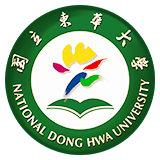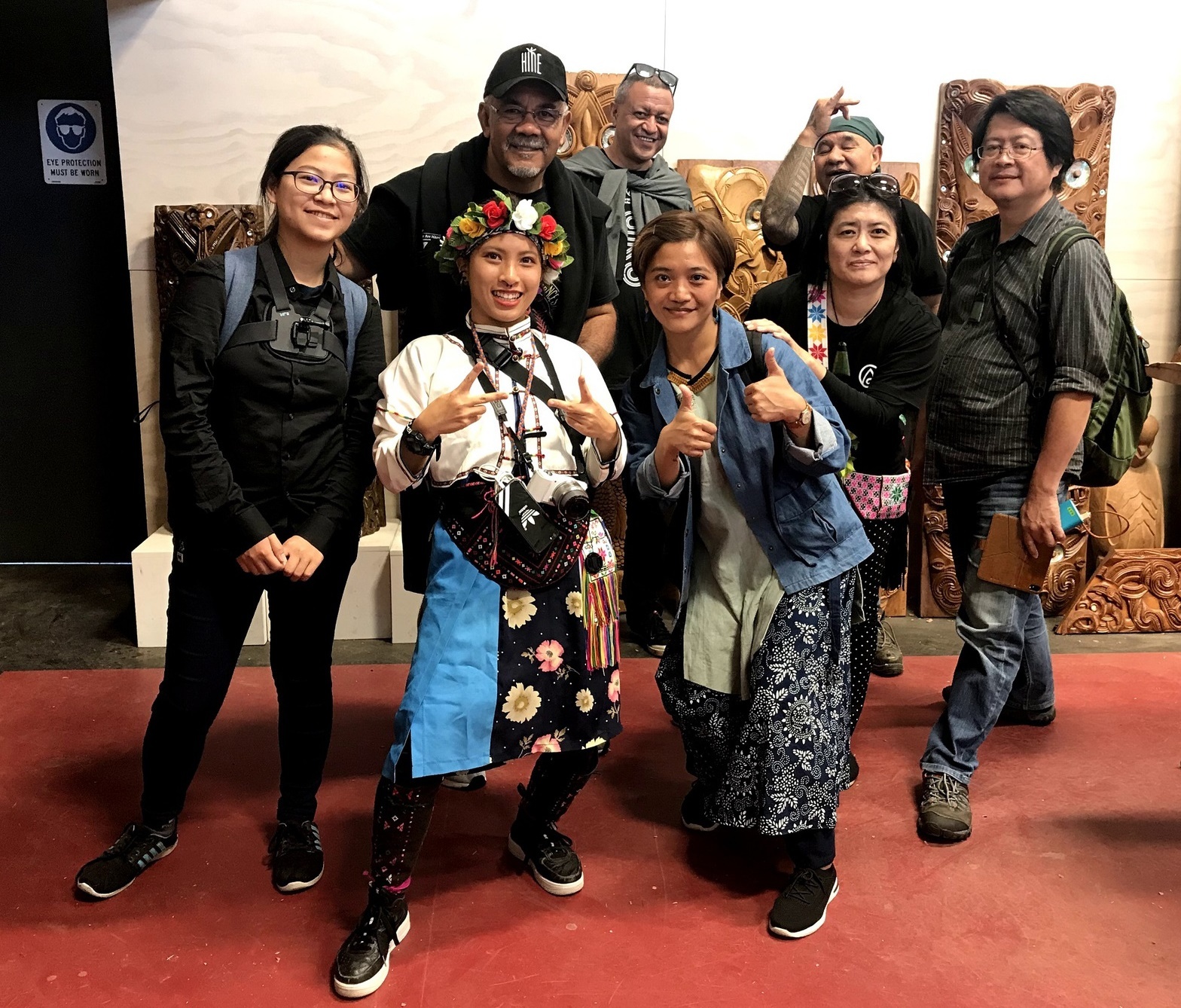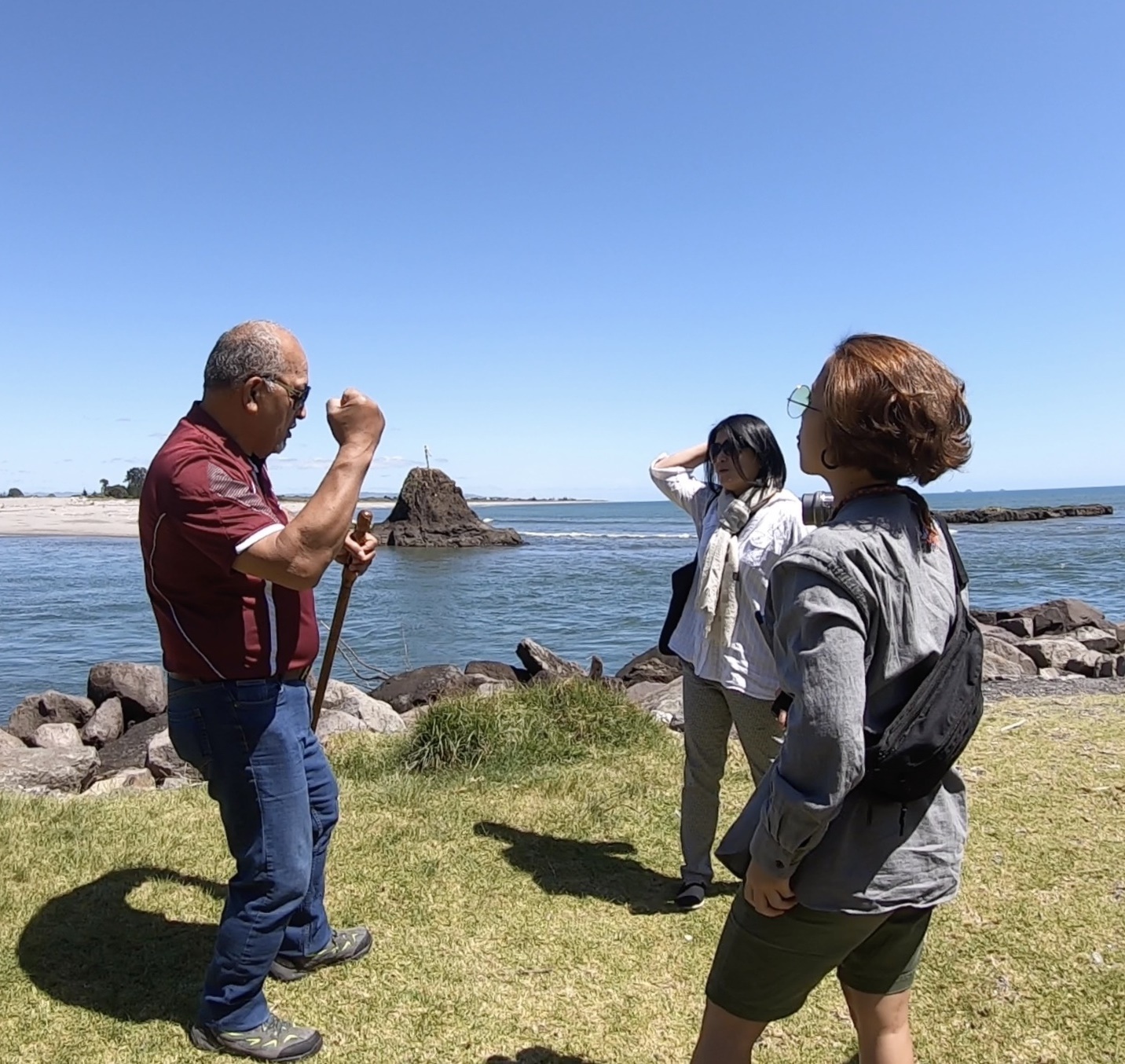


Hon. Te Ururoa Flavell (first from back) guiding the NDHU team to the national craft school located at Te Puia
The College of Indigenous Studies (CIS) at the National Dong Hwa University (NDHU) in partnership with Te Whare Wānanga o Awanuiārangi (TWWoA) and Te Wānanga a Aotearoa (TWoA) organized a study abroad team to Aotearoa New Zealand in early November. This study abroad group had the specific learning objectives of gaining a Māori-centered immersion education experience, which included professors, staff, students, and future educators as members.

TWWoA teacher Abe Ringi (first from left) explaining the ancestral legends and migration route of Māori in the Whākatane area
Dr. Jolan Hsieh (Bavaragh Dagalomai, 謝若蘭), the director of Center for International Indigenous Affairs (CIIA), who advocates indigenous education as a right to self-determination served as the program leader. With the great support of Dr. Te Kani Kingi, who was a member of the TWWoA leadership team, the NDHU study abroad team gained great experience of Māori-centered pedagogy which provides learners with acquired Kāupapa Māori (Māori Values) in contemporary New Zealand society through practice. Dr. Hiria Hape, the dean of the School of Iwi Development, organized tailor-made special immersion classes such as Māori legends, Te Reo Māori (language), Māori rights and policies, Marae (the Māori meeting grounds), and Māori food sovereignty for Taiwanese learners. In addition to the campus based classes at the Whākatane campus, the group also visited Māori communities to attend a traditional weaving class where they were also impressed by the linguistic landscape and Māori values and knowledge as day to day practice.
The team also visited its partner school TWoA. CEO Hon. Te Ururoa Flavell took the group to Te Puia at Rotorua to learn about Māori cultural performance and the traditional arts and crafts made by contemporary materials. Most Notably, Flavell has twelve years' experience as a New Zealand Parliament member and has endeavored to practice the values of Kāupapa Māori. The Hon. Te Ururoa Flavell therefore arranged that the team be welcomed by "Pōwhiri" (welcome ceremonies) in a campus Marae located in a local technology university. Flavell emphasized that, the purpose of building Marae in the school is to promote and keep the values of Māori in the schools as well as the local communities. "The Marae is a traditional learning place, and we use it for weekend learners to access Māori culture and values." Flavell said.
As the team members were from different indigenous nations and ethnic backgrounds, they not only acquired the values and cultural practices of Māori through Māori-centered Education, but also conducted self-reflections on their own life experiences. "It is necessary to make the team members understand the construction of indigenous cultures and knowledge systems. Without a basic understanding of that, they will not know how to respect each other. Without respecting each other, the cultures which have been oppressed for years will not be passed down,"said Professor Cherg-Hsien Yang (楊政賢), who was also a team member. After the two-week learning experience, the team members expressed that the learning experience had brought them deeper understanding of the "Ethnic Mainstreaming Policy" which leads future practice of indigenous justice and reconciliation.
|
|

